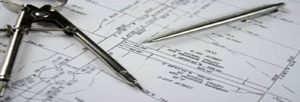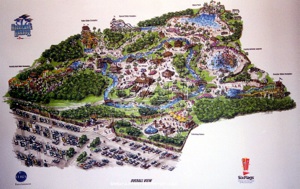
land surveying consulting engineers engineers land surveys land survey professional surveyors professional engineers engineering surveying engineering firm construction surveyors surveyors engineering consulting construction engineers engineering consultants land surveying companies land survey cost professional engineer land survey jobs land survey company land survey companies land survey services boundary surveys land surveyer construction surveying boundary survey engineering engineering surveyors topographic surveys surveying companies engineer surveying company site surveying surveying services surveyor surveying land surveying firm engineering firms structural engineering firms civil surveying consulting engineer topographic survey surveying engineering jobs design engineers engineering consultant topographic surveying construction surveyor engineering services architectural engineering elevation certificate engineering design engineering company land surveying job building surveyor building surveying land surveying software find land surveying land surveying service land surveying services land surveying company construction engineer land surveying schools engineering surveys how to survey land construction engineering land survey service land title survey boundary surveying land surveyers boundary surveyors topographical surveyors public land survey professional engineering professional land surveying licensed surveyors professional surveyor professional engineering exam topographic surveyors environmental engineering topographical surveys property line survey engineering surveyor surveying job professional engineer license surveying engineers residential surveying find a surveyor civil software surveying engineer licensed surveyor land development surveyor firm construction engineering consulting land surveying firms surveying firm construction engineering consultants construction engineering consultant
Property Marshall engineering group INC. scope of work as follows:



Survey FAQ
The Most common types of serveys we provide
Topographic Survey:
A survey locating topographic features that are natural and man made – such as buildings, improvements, fences, elevations, trees, streams, and contours. This type of survey may be required by a governmental agency, or may be used by engineers and/or architects for design of improvements or developments on a site.
Boundary Survey:
A survey for the purpose of locating the corners, boundary lines and/or easements of a given parcel of Land. This involves record and field research, measurements, and computations to establish boundary lines in compliance with the Professional Land Surveyors Act.
ALTA Survey:
An American Land Titles Association survey required by title companies and lending institutions for financing purposes. It combines the topographic and boundary surveys and records everything within 5 feet of the boundary line.
Subdivision Survey:
A survey required for the subdivision of a tract of land into smaller parcels. It is conducted in compliance with the Subdivision Map Act and local ordinances. It shows monumentation, record maps and new lots. The map must be filed in the county recorders office.
Control Survey:
The precise location of horizontal and vertical positions of points. It is used in boundary determination, topographic mapping from aerial photographs, and construction staking.
Court Exhibit Survey:
Analysis of various legal descriptions and survey maps; field locating of record, existing monuments, and physical features; and mapping showing this information for the purpose of presenting a visual exhibit to be used in a courtroom.
Site Planning Survey:
A combination of boundary and topographic surveys for preparation of a site plan for use in designing improvements or developments.
Construction Survey:
Construction staking to establish the correct field location of structures shown on improvement plans of roads, pipelines, and buildings.
If you furnish the Surveyor with a legal description, current title report, or policy concerning the parcel that you want surveyed. The Surveyor will then locate the property on the ground, and provide you with a map showing the results of the survey. With this information a lawyer will tell you what you own.
If you instruct the Land Surveyor to locate encroachments, they will be shown on the map.
Corners of the property will be marked with stakes, pipes, or other such monuments with the Professional Land Surveyor’s license number indicated thereo. The corners on the parcel will be pointed out to you, if requested. A record of survey or corner record will be filed when these monuments are set, indicating dimensions of property lines, monuments, and other relative data as required by the Land Surveyors Act, the client, or others.
It is often true that boundary disputes and overlaps are a result of legal descriptions which were originally written and recorded without the benefit of the services of a Professional Land Surveyor. It is important to have these lines properly described and surveyed, if necessary, when property or easement lines are created or changed.
Record of Survey or Corner Record
If a material discrepancy from previous surveys is found or a new corner has to be set, a record of survey or a corner record has to be filed. This map or record is required by state law to protect the public. This will cause the mapping costs to increase, and requires the payment of checking and recording fees.
Tentative Map
A tentative map is the preliminary map of subdivision. It shows how you want to develop your subdivision. Once approved only small variations are allowed legally.
Parcel Map
If you are creating a subdivision and there are less than 5 parcels, you will need to file a parcel map. Parcel maps can be compiled and cost less than a final map of subdivision.
Tract Map
If you are creating a subdivision and there are 5 or more parcels, you will need to file a final map of subdivision called a tract map. Tract maps must be surveyed, and a considerable number of government requirements to meet. It must be signed by a land surveyor.
The cost for most land surveying work is determined, based on the following variables:
Record Search
Past land transactions and the number of parcels involved are variables that affect the search time. This necessary step is complicated by many vague, incomplete, and often contradictory legal descriptions and land records.
Size and Shape of Property
A rectangular parcel contains fewer corners than an irregular shaped parcel, and needs fewer monuments to mark the boundary.
Sectionalized Survey Work
If your property description is in the Public Land System, a survey of the entire section (640 acres +) may be needed, regardless of the area and location of the parcel.
Time of Year
In the summer, foliage may make survey measurements difficult. In winter, weather may conceal field evidence.
Terrain & Vegetation
A level parcel of land is easier to survey than a mountainous parcel. Interference with lines of sight and accessibility complicates fieldwork.
Amount of Existing Evidence on the Property
Existing evidence such as iron, wood, or stone monuments, old fences, and occupation lines, and witness trees aid the Surveyor. Lack of evidence may compound difficulties involved in retracing boundaries.
Local Knowledge of Property
A local surveyor knows more about local survey problems. Someone pointing out accepted occupation lines and monumentation is an aid to the Surveyor.
Abutter Difficulties
Neighbor difficulties are common in boundary problems. If neighbors are cooperative, an otherwise difficult or impossible boundary location may be established by verbal agreement.
Due to these variables, it is important that you request an estimate of the cost of the survey from the Surveyor and be provided periodic updates on the estimate, as the project proceeds.





Land Surveyors pull public record from counties and cities to incorperate existing data with the field data that is generated when conducting a land survey
When planning a remodel It is a good Idea to conslut with a Civil Engineer who is specialized in land surveying who can give you advise on how to apeal to the city of county in the area you are building. often times a city will not aprove redevelopment unless a surveyor and Civil Engineer is consulted.